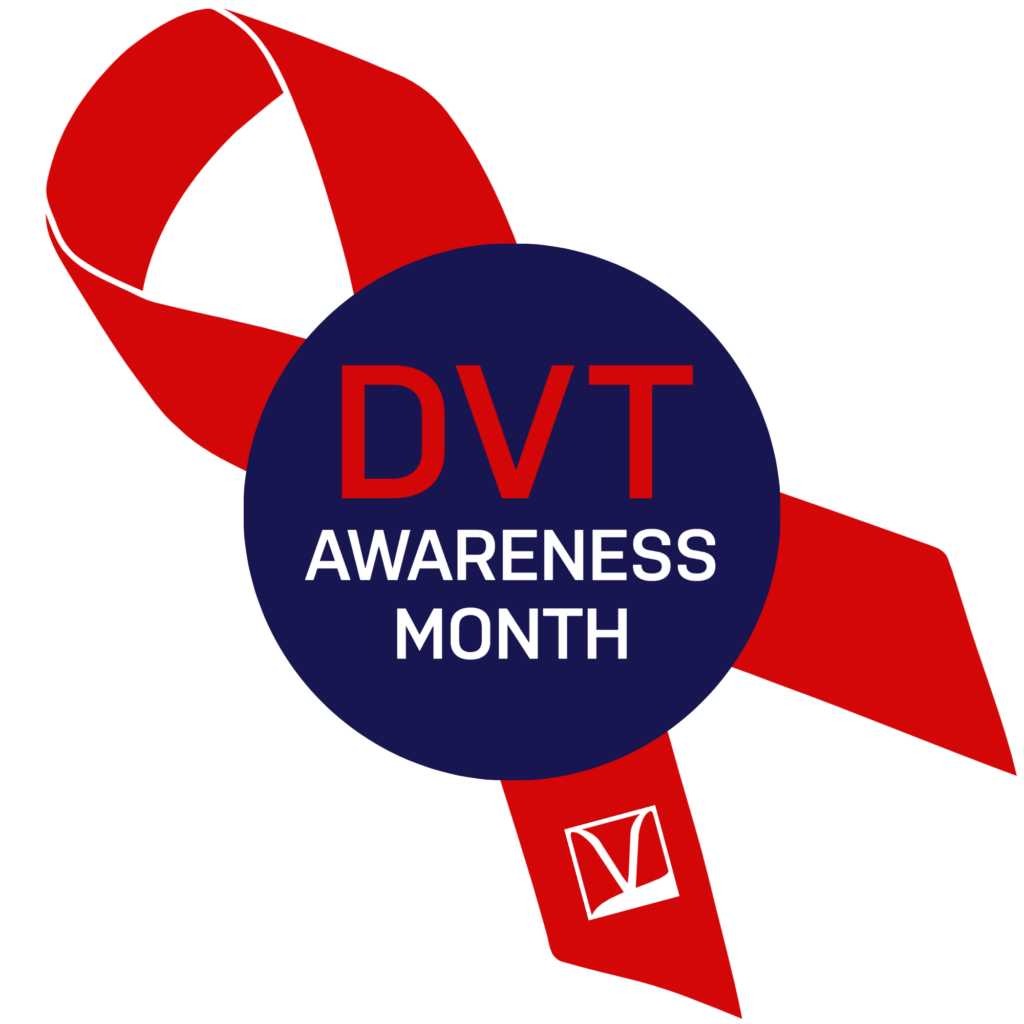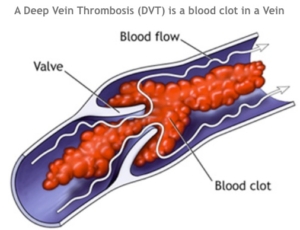March is DVT awareness month. DVT, or deep vein thrombosis, affects up to 2 million Americans each year, but the symptoms of DVT may be subtle and are sometimes difficult to detect.
What is DVT Awareness Month?

Deep Vein Thrombosis (DVT) Awareness Month is a multi-faceted campaign aimed at raising awareness among consumers, healthcare professionals and policy-makers about DVT and associated risks like pulmonary embolism (PE) on a national and local level.
According to the American Public Health Association, 74% of Americans have little or no awareness of DVT. Help us spread the word!
Why is DVT Education Important?
When DVT is spotted early and properly treated, the risk of complication is reduced. When left untreated, it may cause severe complications, some even fatal. Consider the following facts about DVT:
- DVT occurs in up to 2 million Americans every year.
- More people suffer from DVT annually than heart attack and stroke.
- Up to 600,000 patients are hospitalized each year for DVT.
- Pulmonary embolism causes more deaths annually in the United States than breast cancer, AIDS and highway fatalities (combined).
- Fatal PE may be the most common preventable cause of hospital death in the United States.
- Only one-third of hospitalized patients with risk factors for blood clots received preventive treatment, according to a U.S. multicenter study.

- Without preventive treatment, up to 60 percent of patients who undergo total hip replacement surgery may develop DVT.
- Cancer patients undergoing surgical procedures have at least twice the risk of postoperative DVT and more than three times the risk of fatal PE than non-cancer patients undergoing similar procedures.
- In the elderly, DVT is associated with a 21 percent one-year mortality rate, and PE is associated with a 39 percent one-year mortality rate.
- A woman’s risk of developing Venous Thromboembolism (VTE) is six times greater when she is pregnant.
- PE is the leading cause of maternal death associated with childbirth.
Join the DVT Awareness Effort
Here at Inovia Vein Specialty Centers, we host a yearly campaign to spread awareness about DVT to local healthcare providers and patients. Follow us on Instagram and Facebook for DVT Awareness updates and to join in the efforts!
Get Evaluated for Deep Vein Thrombosis
If you like to learn more about DVT on an elective basis schedule a visit with your primary care provider or with us by calling any of our clinics or filling out our Online Appointment Request Form.
Of course, if there is any question that you have new DVT you should seek immediate medical attention by going to an urgent care, emergency room, or call 9-1-1.
